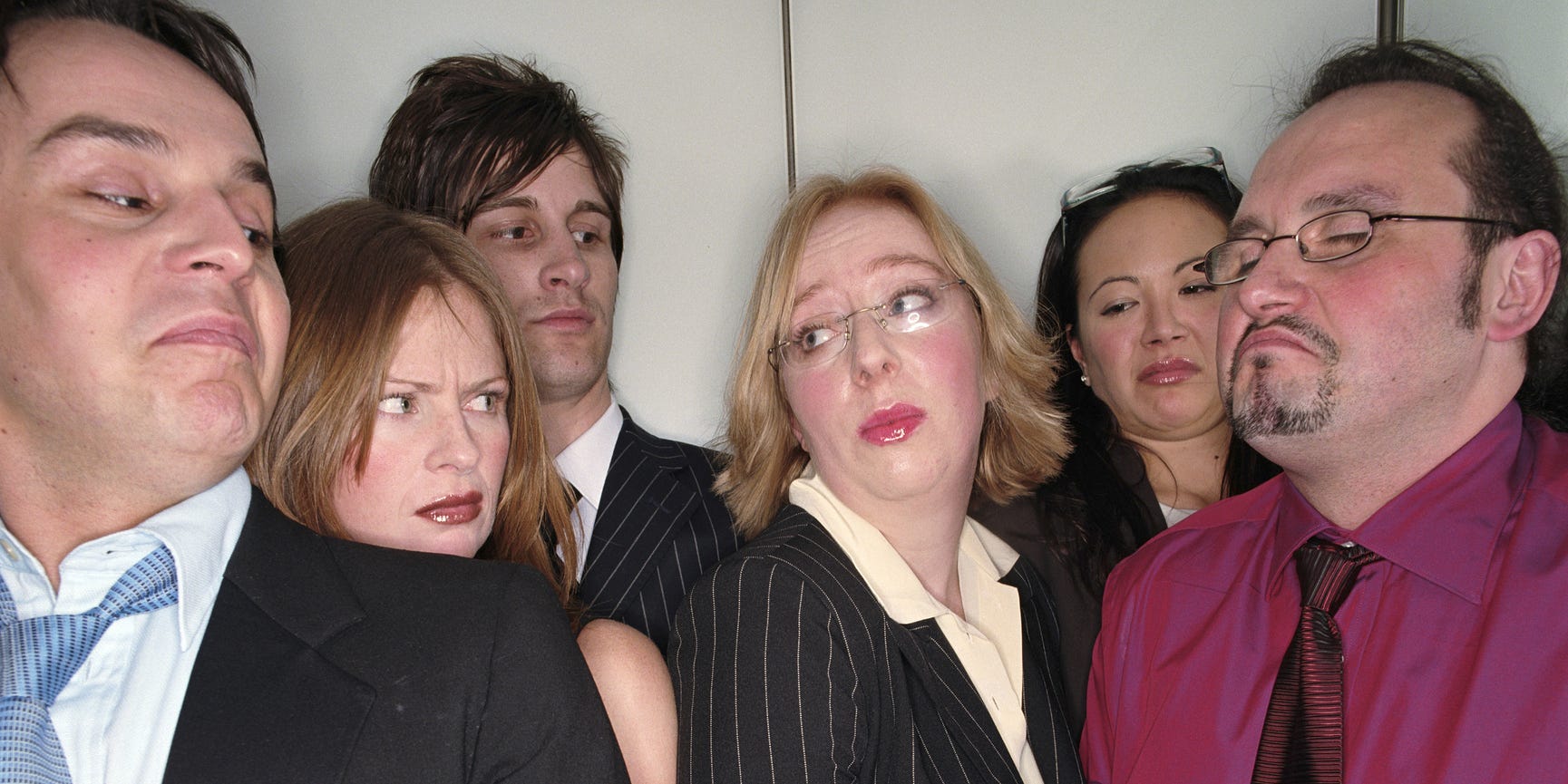
- Your farts could smell bad for a number of reasons ranging from diet to a health condition.
- HIgh-fiber foods and food intolerances are some of the main culprits of smelly farts.
- Health conditions like inflammatory bowel disease can also be causing your stinky flatulence.
- Visit Insider's Health Reference library for more advice.
Farting is entirely normal, and most people pass gas 5-15 times a day.
"Most of it is odor-free and undetectable," says Heather Moday, MD, founder of the Moday Center, a functional medicine practice.
Gasses including hydrogen, hydrogen sulfide, carbon dioxide, ammonia, and methane are naturally produced during digestion, as the bacteria in the gut break down foods.
"When all these combined gasses are passed through their system they can sometimes come out smelling bad," says Abhijeet Waghray, MD, a gastroenterologist with Vanguard Gastroenterology.
Occasional stinky flatulence is to be expected, but if you consistently have noxious gas there could be an underlying medical concern at play. From food to infection, here are the things that might be causing your stinky farts, and how you may be able to get rid of them.
1. Diet
Diet and eating habits are the most common cause of stinky farts. Eating quickly can cause you to swallow more air with your food, leading to more gas in your digestive tract. That has the potential for stinky farts, says David Prologo, MD, an obesity-medicine specialist and author.
Certain types of foods also lead to stinkier farts. Chief among them are foods rich in fiber, like beans, leafy greens, and fruits. When your gut bacteria break down fiber, they release gases including hydrogen, carbon dioxide, and methane that can lead to smelly farts.
Foods that are rich in sulfur, including onion, broccoli, and cabbage can also cause odorous gas, says Moday. As these foods are digested, sulfur compounds are released causing gas that smells sulfurous, or like rotten eggs.
What to do about it: Eat slowly and chew your food thoroughly, which makes it easier to digest. If you're eating beans, soak them overnight to make them softer. Keep a food diary to notice which foods give you foul gas.
There's no medical reason to avoid these foods, but you might want to skip them before social events, says Waghray. "Moderating ingestion may help reduce instances of foul-smelling gas if it is a concern," he says.
2. Food intolerance
Certain foods are difficult for the digestive tract to break down leading to food intolerances. Chief among them is lactose intolerance, which occurs when a person's body doesn't make enough of the enzyme needed to digest lactose — the type of sugar found in milk and other dairy products, says Moday.
"This may make the farting worse," Moday says, because the undigested lactose sits in the gut and is broken down by bacteria, which releases gas.
Other food intolerances including gluten intolerance and FODMAP intolerance can also lead to gas for the same reason.
If you have a food intolerance you might notice other symptoms including:
- Stomach pain shortly after eating
- Diarrhea
- Skin rashes or itching
What to do about it: See a doctor if you think you have a food intolerance. Keep a food journal to see what foods trigger your symptoms and avoid those. Finally, talk to your doctor about digestion aides like lactase pills, which provide the enzymes needed to digest certain foods more easily.
3. Constipation
Stool is primarily fiber, which humans can't digest. When stool stays in the colon for longer than the normal 36 hours or so, bacteria continue to break down the fiber, releasing gas, says Moday.
Unfortunately, smelly farts are not a sign that things are moving.
"It's just a sign of the gas finding a path of least resistance," Prologo says.
What to do about it: Treat the underlying cause of constipation. Be sure you're getting enough fiber — 25 grams a day for females and 38 grams a day for males. Drink plenty of water and exercise. If you're still not having at least three bowel movements a week, talk to your doctor about using a laxative, says Moday.
4. Medicine
If you start a new medication and suddenly notice more fragrant farts, your meds may be to blame, says Prologo.
Many medications and supplements can affect how food moves through your digestive tract, which might cause stinky farts. Others have fillers or sugar alcohols that can be difficult to digest, says Moday.
Medications that can cause stinky farts include:
- Nonsteroidal anti-inflammatory drugs (NSAIDs), including Motrin®, Advil® and other over-the-counter pain relievers
- Antacids
- Diarrhea medications
- Fiber supplements
- Opioid pain relievers
- Antidepressants
What to do about it: Talk to your doctor about reducing, stopping, or otherwise altering your medication. Never alter medication without speaking with your doctor, says Prologo.
Remember, gas might seem like a small side effect, but if it's negatively impacting your day-to-day, then it's worth speaking to your doctor, he says.
In addition to adjusting your medications, your doctor might suggest lifestyle changes like increasing your fiber and water intake that can help with digestion.
5. Underlying medical condition
Nailing down the cause of stinky farts can be difficult. If you haven't had any big changes to diet or medication, but you're still experiencing fragrant gas that is unusual for you, it's best to seek medical help.
"There are some instances where foul-smelling gas can also indicate an intestinal infection or underlying digestive condition," says Waghray.
Some conditions that can cause gas include:
- Irritable bowel syndrome (IBS)
- Inflammatory bowel disease (IBD), which includes Crohn's disease and ulcerative colitis
- Colon cancer
- Dumping syndrome
- Intestinal bleeding
- Colon polyps
What to do about it: Book a doctor's appointment. If dietary changes don't help, a primary care provider or physician can help you identify any underlying health conditions, says Prologo.
Your doctor will ask about any other symptoms you're experiencing and help you work toward a diagnosis and proper treatment.
Insider's takeaway
Passing gas is entirely normal. It may even be stinky, especially if you're eating lots of fiber-rich or sulfurous vegetables, which are good for overall health.
"The benefits of those foods far outweigh the discomfort of flatulence usually," says Prologo.
Keeping a food journal can help you identify the causes of smelly farts. If you're experiencing discomfort — either from physical symptoms like bloating or from the social awkwardness of passing stinky gas — talk to your doctor about your concerns. In most cases, however, smelly farts are temporary and not cause for alarm.
"Passing gas is a natural process and it's rare for it to be an indication of ill health," says Waghray.

